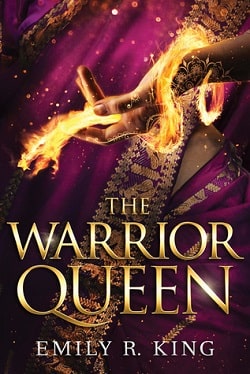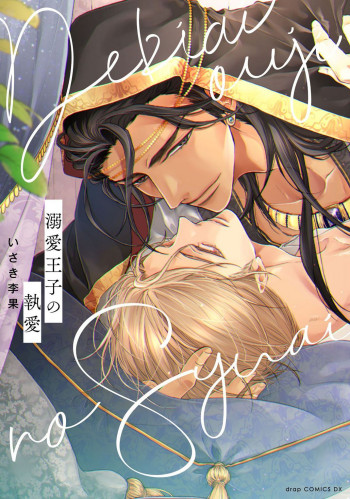The Warrior Queen, the fourth installment in Emily R. King's captivating series The Hundredth Queen, continues the saga of Kalinda, a fierce and determined heroine who has fought tirelessly for peace in the Tarachand Empire. This novel delves into the complexities of love, loss, and the relentless pursuit of hope, all while maintaining the rich tapestry of a fantasy world that King has meticulously crafted throughout the series.
At the heart of the story is Kalinda's struggle to reconcile her newfound peace with the personal sacrifices she has made. The blurb sets the stage for a narrative steeped in emotional depth, as Kalinda grapples with the absence of her childhood home, her best friend, and the love of her life, Deven. The stakes are raised significantly when Deven, trapped in the Void, fails to visit her one night, signaling a dire turn in their already precarious situation. This moment serves as a catalyst for Kalinda's journey, propelling her into the depths of the Void in a desperate bid to save him.
King's portrayal of Kalinda is nothing short of remarkable. She is a character who embodies resilience and strength, yet also displays vulnerability that makes her relatable. Throughout the series, readers have witnessed her evolution from a sheltered girl into a formidable warrior queen. In The Warrior Queen, this evolution reaches new heights as Kalinda confronts not only external challenges but also her internal fears and doubts. Her determination to rescue Deven, despite the overwhelming odds, showcases her unwavering love and commitment, making her a beacon of hope in a world fraught with darkness.
The theme of love is intricately woven into the narrative, serving as both a source of strength and a potential downfall. Kalinda's relationship with Deven is beautifully depicted, highlighting the profound connection they share. Their love transcends the physical realm, as evidenced by Deven's nightly visits from the Void. This ethereal connection adds a layer of poignancy to their relationship, emphasizing the lengths to which Kalinda is willing to go for the one she loves. King's exploration of love in its various forms—romantic, platonic, and familial—adds depth to the story, making it resonate on multiple levels.
Moreover, the concept of the Void itself is a fascinating element of the story. It serves as a metaphor for despair and isolation, reflecting the emotional turmoil that Kalinda experiences. The Void is not merely a physical space; it represents the struggles that individuals face when they are cut off from those they love. Kalinda's journey into the Void is symbolic of her willingness to confront her fears and fight against the odds, reinforcing the idea that true bravery often lies in vulnerability.
King's world-building continues to impress, with vivid descriptions that transport readers to the heart of the Tarachand Empire. The intricate details of the setting, from the lush landscapes to the cultural nuances, create an immersive experience that enhances the narrative. The introduction of gods and other supernatural elements adds a layer of complexity to the plot, raising questions about fate, free will, and the nature of sacrifice. King's ability to blend these fantastical elements with relatable human emotions is a testament to her skill as a storyteller.
Character development is another strong suit of this novel. Supporting characters, such as Prince Ashwin, are given ample opportunity to grow and evolve alongside Kalinda. Ashwin's transition into his role as rajah is fraught with challenges, and his relationship with Kalinda adds an interesting dynamic to the story. Their interactions highlight the importance of collaboration and understanding in leadership, reinforcing the idea that true strength lies in unity.
As Kalinda embarks on her quest to save Deven, readers are taken on a rollercoaster of emotions. The pacing of the novel is expertly crafted, with moments of tension and suspense balanced by quieter, introspective scenes that allow for character reflection. King's writing style is both lyrical and accessible, making it easy for readers to become engrossed in the story. The dialogue is sharp and engaging, further enhancing the character dynamics and emotional stakes.
In comparison to other works in the fantasy genre, The Warrior Queen stands out for its emphasis on emotional depth and character-driven storytelling. While many fantasy novels focus heavily on epic battles and grand quests, King prioritizes the internal struggles of her characters, making their journeys feel authentic and relatable. Readers who enjoy the works of authors like Sarah J. Maas or Leigh Bardugo will find much to love in King's writing, as she similarly blends romance, adventure, and personal growth.
Overall, The Warrior Queen is a powerful addition to The Hundredth Queen series, offering a compelling narrative that explores the themes of love, sacrifice, and resilience. Emily R. King's ability to create a rich, immersive world populated by complex characters is commendable, and her storytelling prowess shines through in this installment. As Kalinda faces the challenges ahead, readers will undoubtedly find themselves rooting for her every step of the way, eager to see how her journey unfolds.
In conclusion, The Warrior Queen is a must-read for fans of fantasy literature. It is a poignant reminder that even in the darkest of times, love and hope can light the way. With its engaging plot, well-developed characters, and emotional depth, this novel is sure to leave a lasting impact on its readers.
























Reviews 0
Post a Reviews: